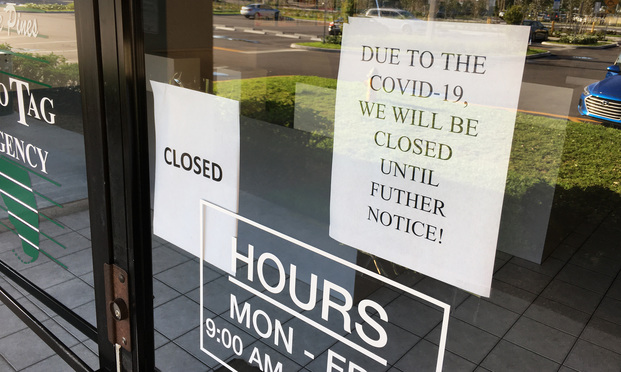
December 29, 2020 | New York Law Journal
Realty Law DigestScott E. Mollen, a partner at Herrick, Feinstein, discusses "U.S. Bank Nat'l Assoc. v. Goldman Sachs Mortgage," where the agreement imposed an obligation of reasonableness as to enforcement undertaken by the trustee, and "47-351 Operating Corp. v. Merino," where an Airbnb occupant overstayed his reservation.
By Scott E. Mollen
14 minute read

December 29, 2020 | New York Law Journal
Issue of Sua Sponte Dismissals In Foreclosure ActionsA not so uncommon event in mortgage foreclosure actions is the dismissal of the case, or the compelling of some measure by the court, sua sponte, that is, on its own—without a motion having been made for that relief. The sheer reported volume of appellate division reversals of trial court sua sponte dismissals confirms that such occurrences are, if not definable as a problem, certainly an issue.
By Bruce J. Bergman
11 minute read

December 23, 2020 | New York Law Journal
COVID-19 and Its Impact on Divorce and Retirement PlansNot paying attention to the impact COVID-related death or disability may have on your retirement plan can be a costly mistake.
By David Gensler
9 minute read

December 23, 2020 | New York Law Journal
COVID-19 and the Commercial LandlordIn April, author Joshua Wurtzel published an article advising struggling commercial tenants how they may avoid their rent obligations during the COVID-19 pandemic. Most of that advice remains viable today. Eight months later, this article turns to struggling commercial landlords with advice on how to maneuver through these times.
By Joshua Wurtzel
14 minute read

December 23, 2020 | New York Law Journal
Tips for District Court Amicus Brief SuccessProcedural and substantive tips for preparing highly effective district court amicus briefs.
By Akiva Shapiro, Lee R. Crain and Amanda L. LeSavage
7 minute read

December 22, 2020 | New York Law Journal
Realty Law DigestScott E. Mollen, a partner at Herrick, Feinstein, discusses "Columbia University v. D'Agostino Supermarkets," a decision involving a clash of competing public policy considerations: freedom to contract, enforceability of settlement agreements and the unenforceability of illegal penalties.
By Scott E. Mollen
17 minute read

December 22, 2020 | New York Law Journal
Treasury Issues Final Regulations Under Section 163(j)On Nov. 26, 2018, the Treasury Department issued proposed regulations under Section 163(j), and on July 28, 2020, these regulations were finalized. The final regulations largely adopt the proposed regulations, but with some important modifications that are generally favorable to taxpayers.
By Ezra Dyckman and Charles S. Nelson
6 minute read

December 22, 2020 | New York Law Journal
Director Pay Remains a Prime Target of the Plaintiffs' BarIn recent years, Delaware courts, leaders in the development of corporate law, have imposed a more stringent standard of review to director compensation when challenged by stockholders which has led to more such challenges by the plaintiffs' bar. This article discusses the increase in this type of litigation, recent case law, and practical advice for boards to mitigate the risk.
By David B. Hennes and Adam M. Harris
9 minute read

December 16, 2020 | New York Law Journal
Does New York Have a State Militia as Defined by the Second Amendment?This article deals with a "band of brothers" and "sisters," namely, prominent jurists, state and federal, as well as distinguished and prominent lawyers, who gather together at least one day each month.
By Jay Goldberg and Alex Huot
9 minute read

December 15, 2020 | New York Law Journal
Realty Law DigestScott E. Mollen, a partner at Herrick, Feinstein, discusses "Wyona Apts. LLC v. Ramirez," where the court held that a virtual trial did not violate the respondents' due process rights, and "204 E. 38th LLC v. Sons of Thunder LLC," where an administrative code provision barred the lessor from seeking recovery based on a personal guaranty.
By Scott E. Mollen
15 minute read



